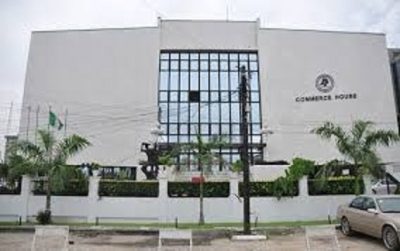The Lagos Chamber of Commerce and Industry (LCCI) has expressed concerns over the Central Bank of Nigeria’s (CBN) recent decision to raise the Monetary Policy Rate (MPR) by 50 basis points to 26.75%.
While acknowledging the CBN’s efforts to control inflation and stabilize the economy, the LCCI is worried about the broader implications of this rate hike on the business community and the overall economic landscape.
Dr. Chinyere Almona, Director General of LCCI said the Chamber is in support of a more balanced approach to monetary policy, considering the need to mitigate adverse effects on business operations and economic growth.
She proposed measures including; release of more capital expenditure to reflate business activities and support economic growth, faithful deployment of supplementary budget funds on business-boosting infrastructure as proposed to the National Assembly.
Diversifying approaches to controlling inflation beyond interest rate hikes, addressing supply-side constraints such as agricultural productivity and energy price stabilization.
Dr. Almona also recommended increase investment in infrastructure to alleviate production bottlenecks and reduce business costs, enhancing productivity and competitiveness.
The LCCI restated it’s committment to working with the government and the CBN to ensure policies that foster a conducive environment for business growth and economic stability.
The Chamber believes that a holistic approach, balancing inflation control with support for businesses, will pave the way for sustainable economic development in Nigeria.
The recent rate hike by the CBN has sparked concerns among businesses, as it may lead to increased borrowing costs, reduced consumer spending, and decreased economic growth.
The LCCI’s proposals aim to mitigate these effects and promote a more balanced approach to monetary policy.
By releasing more capital expenditure, the government can stimulate business activities and support economic growth.
Faithfully deploying supplementary budget funds on business-boosting infrastructure will also help alleviate production bottlenecks and reduce business costs.
Diversifying approaches to controlling inflation beyond interest rate hikes is crucial. Addressing supply-side constraints, such as agricultural productivity and energy price stabilization, can help reduce inflationary pressures more effectively.
Increased investment in infrastructure is also essential to enhance productivity and competitiveness, helping to tame inflation from the supply side.
Overall, the LCCI’s recommendations offer a holistic approach to monetary policy, balancing inflation control with support for businesses.
By working together, the government, CBN, and private sector can create a conducive environment for business growth and economic stability, paving the way for sustainable economic development in Nigeria.









Comment here